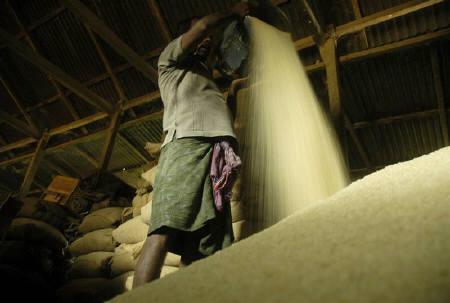India-EU FTA nearing ’closing stages’

Business Standard | Jan 18, 2012
India-EU FTA nearing ’closing stages’
Nayanima Basu / New Delhi
Despite the crisis in Euro zone, the negotiations on India-EU free trade agreement (FTA) has reached “closing stages” as both sides enter yet another round of formal negotiations. While consensus has been achieved in some tricky areas such as wine and pharmaceuticals, negotiators are now busy reaching an agreement in agricultural products and automobiles.
Chief negotiators from both sides met last week to hammer out some crucial agreements in some of the important areas like rice, sugar, textiles and auto. The outcome of the meeting turned out to be instrumental in order to close the talks by February 10 during the India-EU Summit here. While the Indian side was represented by Rajeev Kher, additional secretary, Ministry of Commerce and Industry and the chief negotiator from the 27-member EU was Ignacio Garcia Bercero. EU High Representative for Foreign Affairs and Security Policy and Vice President of the European Commission Catherine Ashton was also on a two-day visit to India that ended here today. She also met Commerce and Industry Minister Anand Sharma and both were believed to have discussed an early conclusion of the deal.
“We are at the closing stages now. We have sorted out many things already we are at the last stages now and how much we can do is still a matter of negotiation. Many contentious issues have been sorted out. Some of the outstanding issues still remain,” a senior commerce department official told Business Standard.
India has demanded significant relaxation for the movement of its workers and professionals in services trade which would entail liberalization in EU’s Schengen Visa regime, according to officials involved in the talks. Besides, both India and EU would need to close the gaps that still remain pertinent to tariffs and procurement. Hence, both parties have decided to step up the momentum of the talks before the upcoming India-EU Summit.
So far 14 rounds of formal negotiations have taken place, since the talks were launched in June 2007. The last round was held from January 12-13 in Delhi. Recently, the minister Sharma had said that the agreement would lead to increase of opportunities for market access in both goods and services for both sides. Both sides had been eager to clinch this deal for mutual benefits. While the EU wants to gain more access into the Indian markets, India is looking at EU as one of the most important destinations for its IT professionals, architects, engineers, teachers and chefs.
EU had been unrelenting on their demands for more tariff concessions in India’s auto sector, which has resulted in severe opposition from the auto manufacturers in India who protest that cheaper imports would into their industry resulting in massive job losses. Similar problems have also risen with the wines and spirits sector. EU has also demanded for stronger implementation of the Intellectual Property Protection norms that might affect the country’s the generic drugs industry which exports almost 67 per cent of its produce to other developing and poorer countries.
As much as 90 per cent of the bilateral trade in goods and services would be covered under the pact with EU, India’s largest trading partner.





